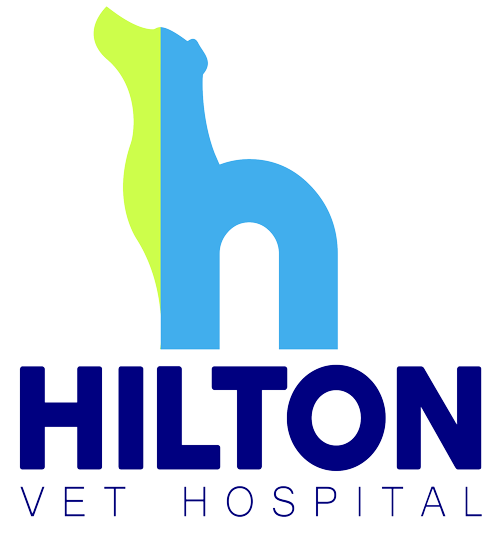Dog Sterilisation & Neutering
Spey and Castration for puppies and dogs
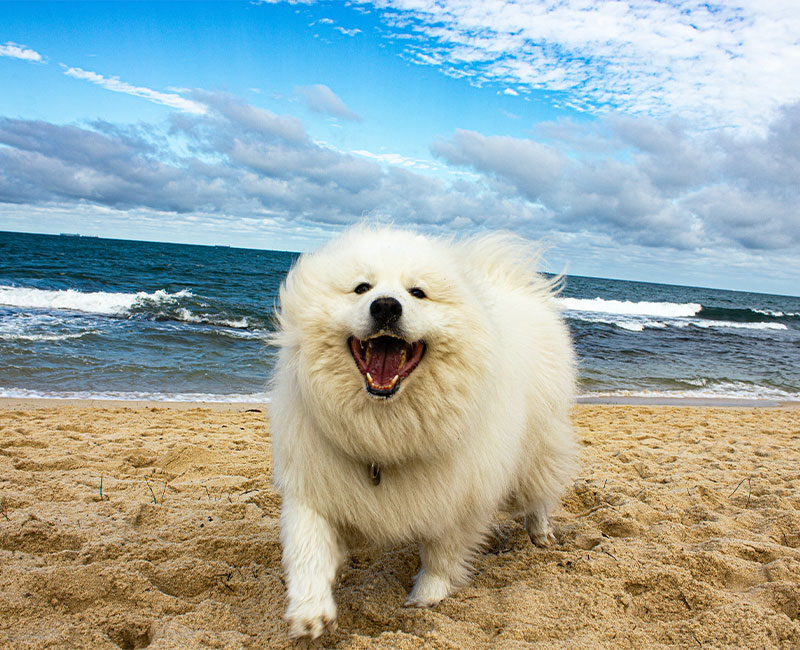
Dog Sterilisation
Surgical dog sterilisation is the preferred method of sterilisation because it is a permanent solution to many behavioural issues and prevention of unwanted pregnancies
Chemical sterilisation is temporary and can be done in male dogs to prevent mating for 6 to 12 months. This is done by injecting an implant under the skin that slowly releases a hormone that suppresses the development of testosterone.
At Hilton Vet Hospital, we recommend sterilising both male and female dogs from 6 months of age. Contact us today to find out more and to book your pet in for sterilisation.
Why Sterilise Your Dog?
Dogs are able to start having puppies at a very young age, and can potentially deliver many litters.
Surveys indicate that dogs that are not sterilised have an increased risk of being abandoned or surrendered.
In Perth, hundreds of dogs are put down each week and about 20,000-30,000 dogs are destroyed each year. Many more are dumped in areas where their likely fate is death by accident, starvation, disease, or from predators. The numbers escalate over the Christmas and Easter periods.
It is reported that the biggest behavioural effect of sterilisation is the huge reduction in roaming, especially of male dogs. Any reduction in stray dogs has a significant public benefit.
Sterilisation eliminates health problems later in life such as prostate enlargement and infection in dogs. It eliminates the risk of ovarian cysts and uterine infection (pyometra) in bitches.
Why come to Hilton Vet for the sterilisation of your pet?
You can expect skillful, accurate and precise vets to care for your pet in our purpose-built surgical theatre. Our qualified nurses provide excellent care with a focus on comfort; We provide excellent pain relief during and after the surgery.
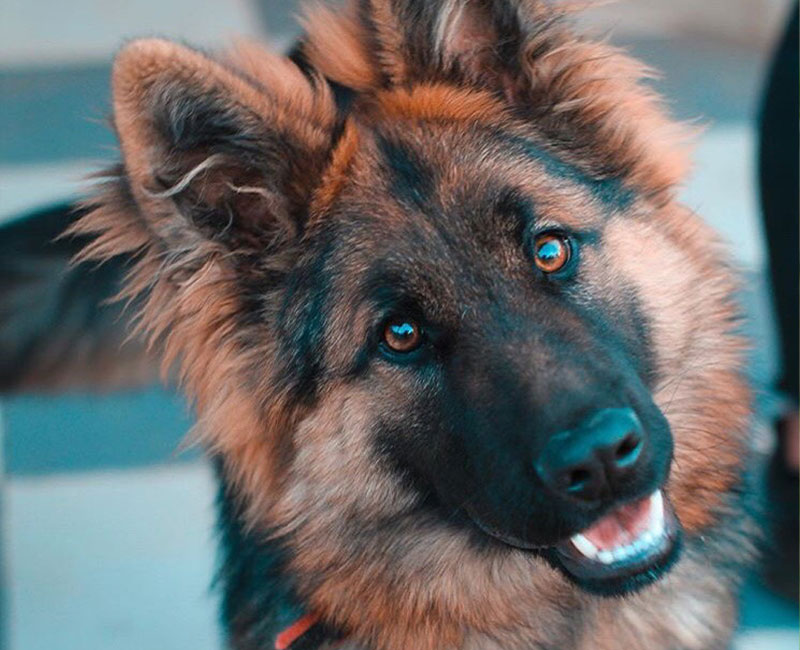
Ovariohysterectomy (Spay)
An ovariohysterectomy (OHE) or spay is the complete removal of the female reproductive tract. The ovaries, oviducts, uterine horns, and the uterus are removed. Not only does this procedure prevent the animal from becoming pregnant, it also stops her from going on heat twice a year.
The surgery removes the source of production of such hormones as estrogen and progesterone.
These hormones are responsible for stimulating and controlling heat cycles and play a major role during pregnancy.
Why Spay My Female Dog?
Mediderm shampoo + Nutriderm Leave On Conditioner
Prevent unwanted pregnancies
Reduce the chance of mammary tumours
Prevent infections of the uterus
Prevent ovarian cancer
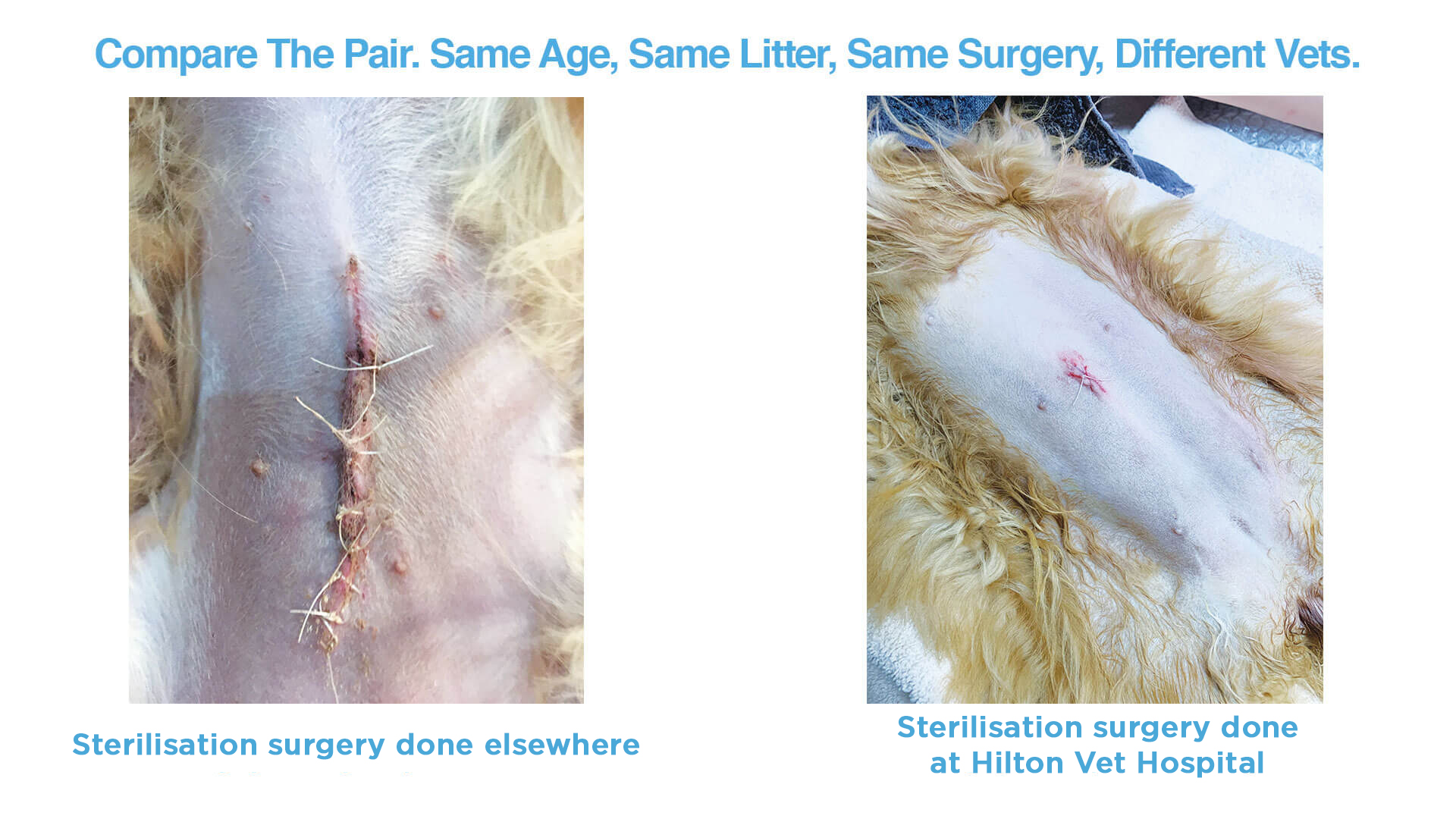
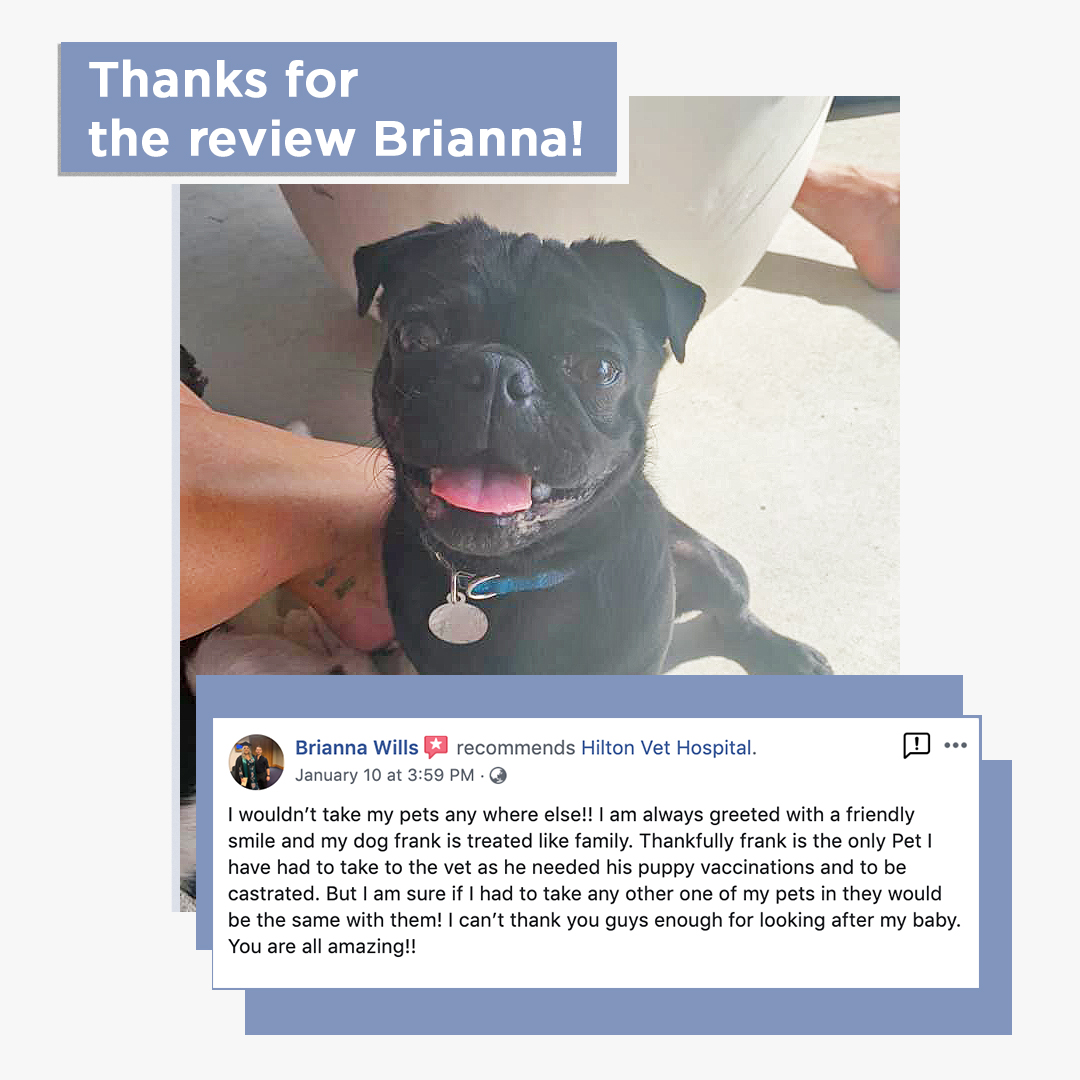
Castration
In this operation, which is performed under general anaesthetic, both testicles are removed, thus removing the source of sperm and the male sex hormone (testosterone).
At Hilton Vet Hospital we recommend to sterilise both male and female dogs from 6 months of age. Contact us today to find out more and to book your pet in for sterilisation.
Why Castrate My Male Dog?
In this operation, which is performed under general anaesthetic, both testicles are removed, thus removing the source of sperm and the male sex hormone (testosterone).
At Hilton Vet Hospital we recommend to sterilise both male and female dogs from 6 months of age. Contact us today to find out more and to book your pet in for sterilisation.
Why Castrate My Male Dog?
Prevent him making female dogs pregnant
Stop him marking his territory (especially inside the house)
Prevent testicular cancer
Reduces the chance of prostate enlargement that can lead to urinary straining.
A sterilisation subsidy from the Fremantle City Council is available for both cats and dogs. Conditions apply. For further information regarding the subsidy telephone the Service and Information Counter on 9432 9899 or visit their website.
Your dog will be comfortable and pain-free.
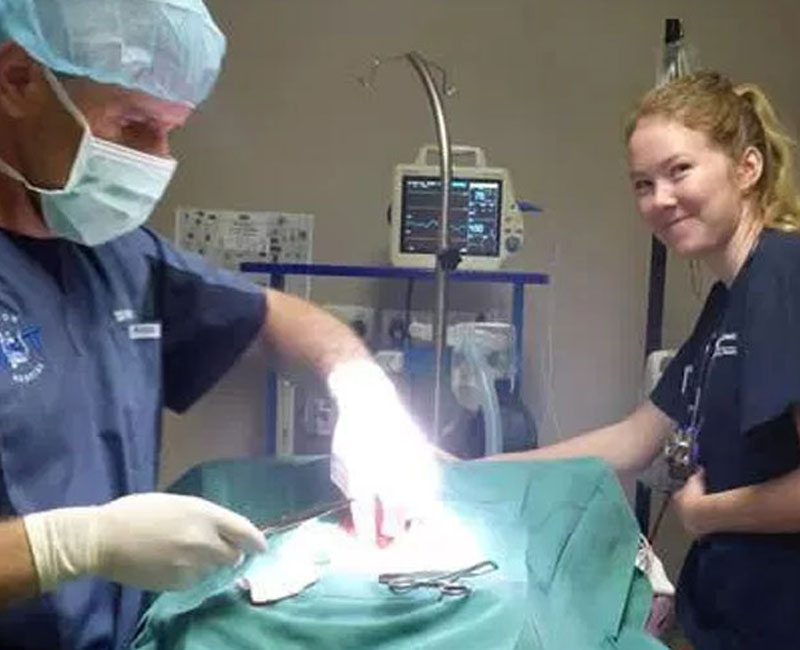
What Does The Surgery Involve?
Surgical sterilisation is the preferred method of sterilisation because it is a permanent solution to many behavioural issues and prevention of unwanted pregnancies
Chemical sterilisation is temporary and can be done in male dogs to prevent mating for 6 to 12 months. This is done by injecting an implant under the skin that slowly releases a hormone that suppresses the development of testosterone.
At Hilton Vet Hospital, we recommend sterilising both male and female dogs from 6 months of age.
Contact us today to find out more and to book your pet in for sterilisation.
Have any questions about sterilising your dog or puppy at Hilton Vet Hospital? Give us a call and we can help with any queries you might have.
Pet owners from all over Fremantle, Hilton, Hamilton Hill, O’Connor, White Gum Valley, Beaconsfield, Willagee, Samson, Coolbellup, Kardinya, Spearwood and Coogee have been coming to Hilton Vet Hospital for more than 30 years to receive exceptional service and care for their pets.
